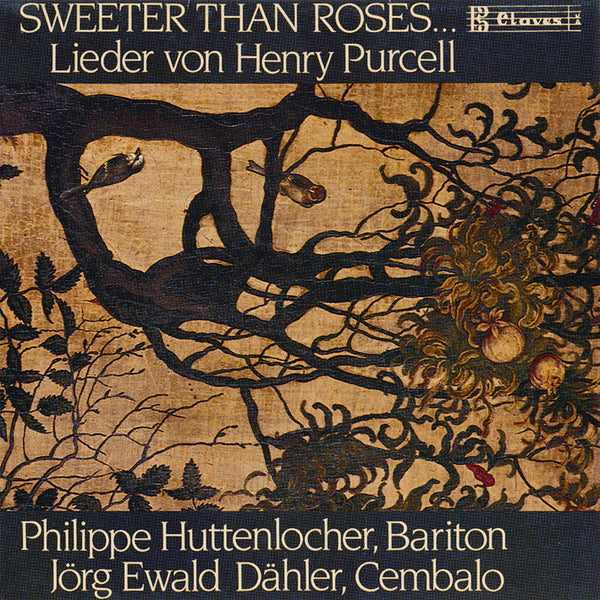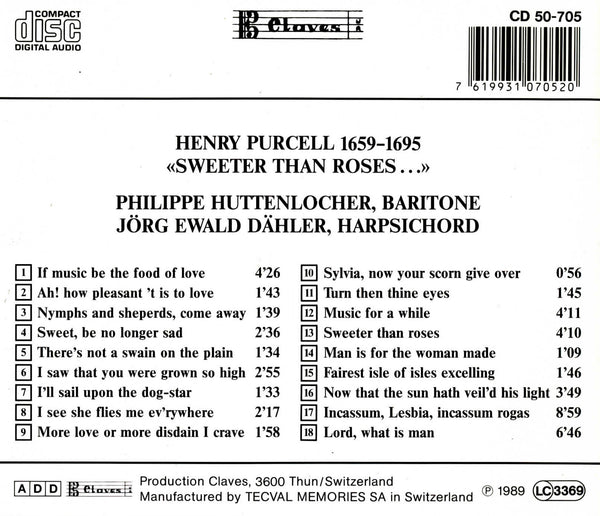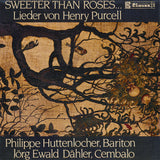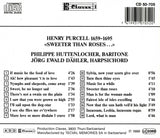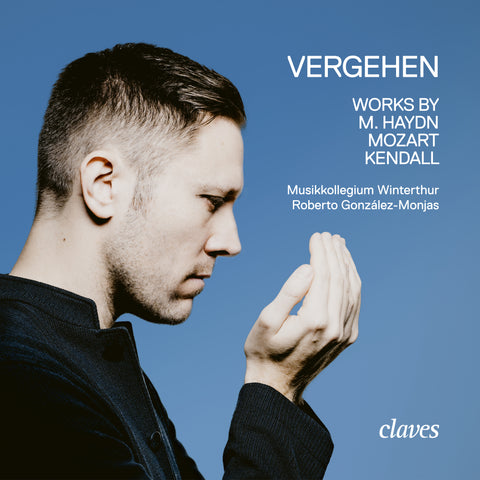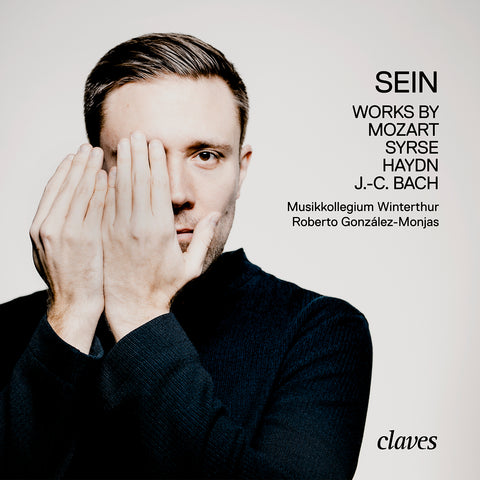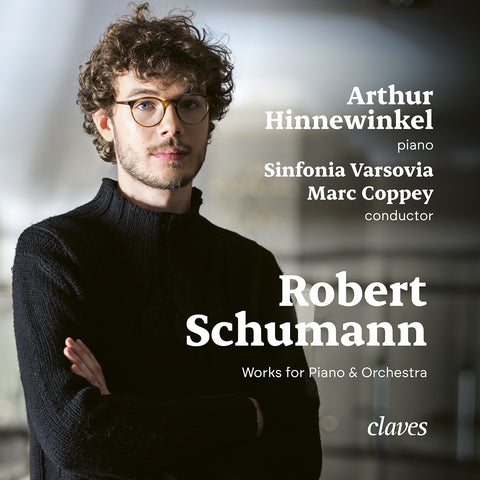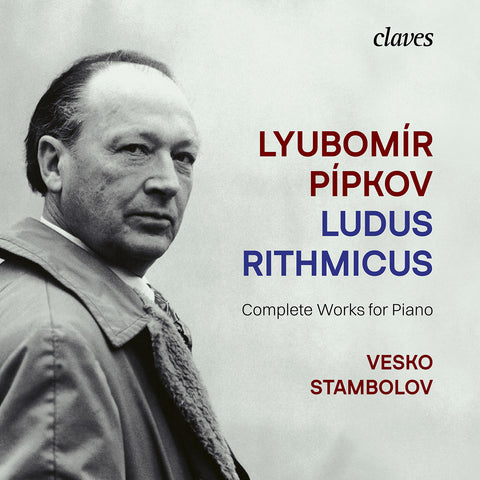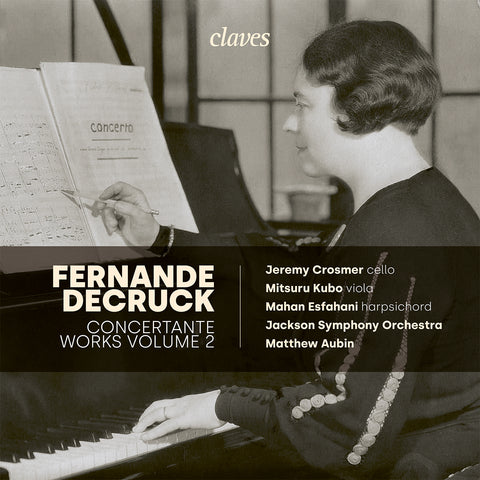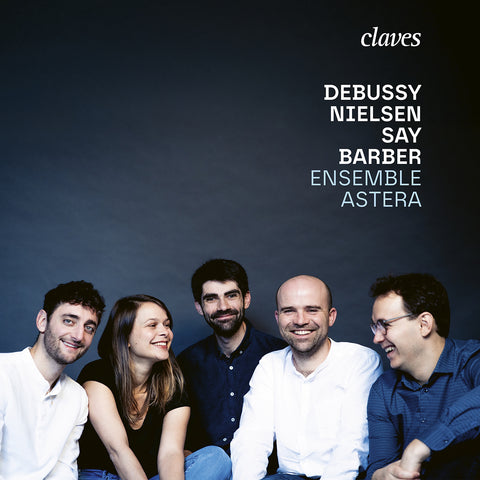(1989) Purcell/Sweeter Than Roses…
Kategorie(n): Alte Musik Operngesang
Instrument(e): Cembalo
Gesangsstimme(n):
CD-Set: 1
Katalog Nr.:
CD 0705
Freigabe: 1990
EAN/UPC: 7619931070520
- UPC: 829410479165
Dieses Album ist jetzt neu aufgelegt worden. Bestellen Sie es jetzt zum Sonderpreis vor.
CHF 18.50
Dieses Album ist nicht mehr auf CD erhältlich.
Dieses Album ist noch nicht veröffentlicht worden. Bestellen Sie es jetzt vor.
CHF 18.50
Dieses Album ist nicht mehr auf CD erhältlich.
CHF 18.50
Inklusive MwSt. für die Schweiz und die EU
Kostenloser Versand
Dieses Album ist nicht mehr auf CD erhältlich.
Inklusive MwSt. für die Schweiz und die EU
Kostenloser Versand
Dieses Album ist jetzt neu aufgelegt worden. Bestellen Sie es jetzt zum Sonderpreis vor.
CHF 18.50
Dieses Album ist nicht mehr auf CD erhältlich.
This album has not been released yet.
Pre-order it at a special price now.
CHF 18.50
Dieses Album ist nicht mehr auf CD erhältlich.
CHF 18.50
Dieses Album ist nicht mehr auf CD erhältlich.
SPOTIFY
(Verbinden Sie sich mit Ihrem Konto und aktualisieren die Seite, um das komplette Album zu hören)
PURCELL/SWEETER THAN ROSES…
Forms and structures vary greatly in Purcell’s songs. Italian ‘recitativo’ elements blend in a characteristic manner with those of the English singing tradition, resulting in Purcell’s unmistakable and highly individual style. There is an ‘Englishness’ about the melodies - and in this feature is not restricted to purely vocal music – and in this connection there is an interesting point about the so-called ‘Ground’ feature (e.g. 8, 12, 16). Here the style takes the form of either bass or contrapuntal variations weave around in the other voices.
Fascinating variations of form are to be found – besides the straightforward strophic song, and songs of an A-B-A type (first section, contrasting second section, repeat of first section) Purcell achieves variety by changing the time signature one or more times resulting in an almost cantata-like effect as the music progresses from section to section.
Purcell is regarded as one of the most important English composers of the pre-Handel era, and his compositions mark the high point of English music at the end of the 17th Century. The success of his music lived on after his death – a success indicated by the numerous editions his music ran to.
(1989) Purcell/Sweeter Than Roses… - CD 0705
A feature of the musical scene in 17th Century England was the solo song with basso continuo accompaniment, found not only in operas and stage plays with music, but also as genre in its own right, the texts set being both secular and sacred. The selection on this record of Henry Purcell’s music reflects this variety of type, ranging from eight songs taken from Purcell’s stage music (3, 5, 7, 8, 12-15), through seven purely secular songs (1, 2, 4, 6, 9, 10, 11) to the two sacred songs (16 and 18), and one song (17) from ‘Three Elegies’ composed on the occasion of the death of Queen Mary in 1965.
Forms and structures vary greatly in Purcell’s songs. Italian ‘recitativo’ elements blend in a characteristic manner with those of the English singing tradition, resulting in Purcell’s unmistakable and highly individual style. There is an ‘Englishness’ about the melodies - and in this feature is not restricted to purely vocal music – and in this connection there is an interesting point about the so-called ‘Ground’ feature (e.g. 8, 12, 16). Here the style takes the form of either bass or contrapuntal variations weave around in the other voices.
Fascinating variations of form are to be found – besides the straightforward strophic song, and songs of an A-B-A type (first section, contrasting second section, repeat of first section) Purcell achieves variety by changing the time signature one or more times resulting in an almost cantata-like effect as the music progresses from section to section.
Purcell is regarded as one of the most important English composers of the pre-Handel era, and his compositions mark the high point of English music at the end of the 17th Century. The success of his music lived on after his death – a success indicated by the numerous editions his music ran to.
Return to the album | Main Artist: Jörg Ewald Dähler







